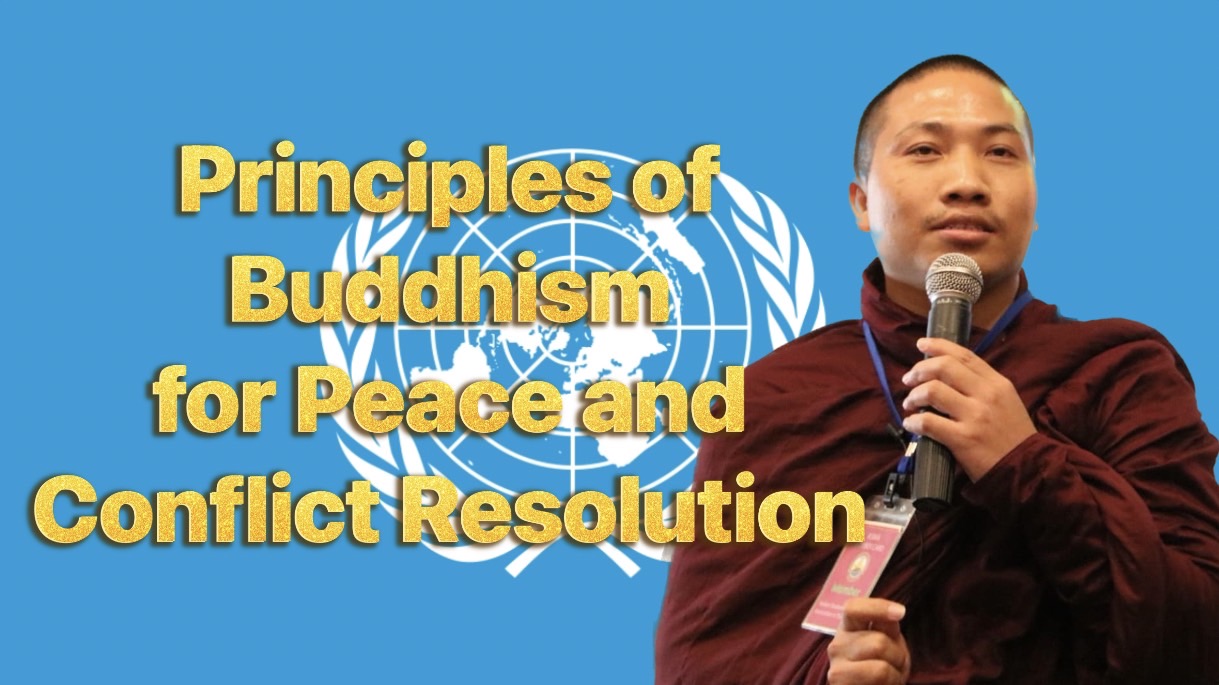The Principles of Buddhism for Peace and Conflict Resolution
The Principles of Buddhism for Peace and Conflict Resolution
- Article of ALOK MIND (Buddhist Philosophy) No. 5.
- Author: Bhikkhu ALOKA
- Published by ALOK MIND Foundation
- Issued: 29 October, 2023
Abstract
The principles of Buddhism for Peace and Conflict Resolution are Non-violence, Compassion, Mindfulness, and Wisdom. Even Buddha taught these principles; they are universal practices. As the universal practices, these are concerned with every single human being to practice in daily life and to make a peaceful society or peaceful world. Non-violence, synonymous with loving-kindness, encourages individuals to refrain from physical harm and embrace ethical and gentle qualities in interactions. Compassion goes beyond empathy, urging us to actively alleviate the suffering of others. Mindfulness promotes self-regulation and a harmonious way of living. If we keep right mindfulness, our action will not be a danger for other, our speech will not be annoying for other, our thought will not be negative emotion such as jealousy, envy. Thus, we can make a more peaceful society. Wisdom allows us to distinguish the roots of problems and their solutions. These principles deeply align with the articles of the Universal Declaration of Human Rights, emphasizing their importance in building a more peaceful world. Regardless of anyone’s belief, culture, color, or class, if we all individually embrace and practice these principles, we can undoubtedly solve our human conflicts and we make a peaceful world.


